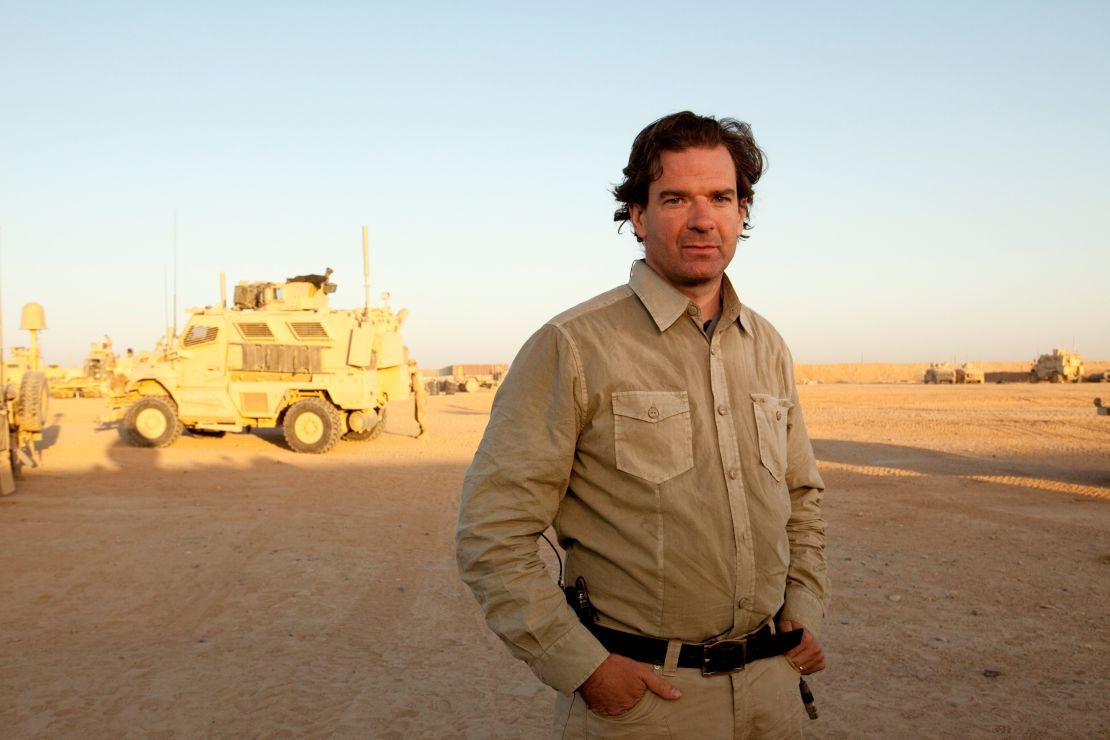Editor’s Note: Peter Bergen is CNN’s national security analyst, a director at the New America Foundation and the author of “Manhunt: The Ten-Year Search for bin Laden – From 9/11 to Abbottabad.” Emily Schneider is a research associate at the New America Foundation.
Story highlights
Peter Bergen, Cynthia Schneider: Video seems to show that ISIS has surveillance drone
They say this highlights new reality: Terrorist groups have technology once used by states
They say Hezbollah says it has used them; Hamas says it has armed and unarmed drones
Writers: Some 80 nations now have drones. We need 'Geneva Convention' to govern their use
In a video uploaded to YouTube on Saturday purportedly by the terrorist group ISIS, various scenes of jihadist propaganda flash across the screen: militants reading verses from the Quran and examining a map of northern Syria, clips of violent clashes and explosions.
But this video had something else in it that previous videos released by ISIS have not: Surveillance footage apparently shot by a drone.
The almost 14-minute video shows aerial views of Syrian Army Military Base 93 near Raqqa province in northern Syria.

ISIS militants attacked the base on August 7, deploying suicide bombers driving truck bombs to soften up resistance in scenes that are also shown in the videotape that was released Saturday.
The caption over the surveillance footage of the Syrian military base reads: “From the drone of the army of the Islamic State.”
That ISIS appears now to be using a relatively sophisticated surveillance drone to plan its military operations underlines an important development: Technology that was once the monopoly of states is now being used by terrorist groups. In April, for example, the Israeli military said it had shot down a drone off the coast of Haifa and that it was operated by Hezbollah, the militant Shiite group operating out of Lebanon.
Hezbollah denied responsibility for the drone, but had claimed earlier that it had operated another drone that had flown 35 miles into Israel in October.
Hamas, too, has drone capabilities. On July 14, Israel shot down a Hamas-operated drone that was flying in Israeli airspace above Ashdod, a city in southern Israel, marking what is believed to be the first time the militant group had sent an unmanned aircraft into Israeli territory.
Hamas then posted a video online that showed another drone, this one with four small rockets under its wings, flying over what analysts believe could also be Israeli airspace.
According to Hamas, its military wing, the al-Qassam Brigades, has engineered three different types of drones: ones for surveillance purposes; ones that can be armed; and ones that can operate as self-guided missiles – a sort of “suicide drone.”
Israel subsequently bombed what it claimed was a Hamas-run drone facility in Gaza.
Libyan opposition fighters targeting Libyan dictator Moammar Gadhafi started using drones for surveillance during the summer of 2011 when they bought a Scout drone from a Canadian company.
The Libyan opposition needed a way to survey its routes before sending rebels into areas where Gadhafi’s soldiers were stationed. The four-rotor helicopter that dangles a stabilized camera seemed like the perfect option. The drone cost between $100,000 and $200,000, according to an article by Laura Rozen for Yahoo News.
Armed drones have been deployed in combat by only three countries: the United States, the United Kingdom and Israel. However, according to a count by the New America Foundation, some 80 countries have some kind of drone capability, whether armed or unarmed. Russia, China and Iran are among the nations that possess armed drones but haven’t used them in combat
That terrorist and militant organizations have acquired and used drones during combat operations for surveillance purposes shows how rapidly this technology is proliferating. This is why it is crucial to have some kind of international agreement that governs the use of armed drones by both states and “nonstate actors.”
One could imagine the creation of some kind of Geneva Convention that specifies as a matter of international law when the use of armed drones could be sanctioned outside of conventional war zones to kill terrorists.
Such a convention would also help to prevent the sale or transfer of sophisticated drone technology to nonstate actors such as ISIS.
Read CNNOpinion’s new Flipboard magazine.









































































